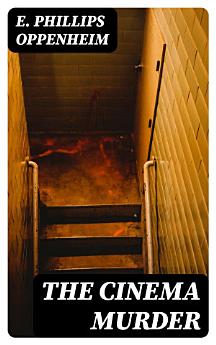The Cinema Murder
E. Phillips Oppenheim
Sep 2022 · DigiCat
Ebook
183
Pages
family_home
Eligible
info
reportRatings and reviews aren’t verified Learn More
About this ebook
E. Phillips Oppenheim's "The Cinema Murder" is a compelling work of early 20th-century crime fiction that deftly weaves elements of mystery and social commentary. Set against the backdrop of the burgeoning film industry, Oppenheim employs a sharp narrative style that is rich in dialogues and vivid characterizations. The novel captures the excitement and moral ambiguity of a society on the brink of modernity, as it grapples with the implications of cinema on public perception and ethics while drawing readers into a gripping investigation surrounding a high-profile murder. Oppenheim, often heralded as the 'Prince of Storytellers,' was known for his immersive plots and intricate characterizations. His career burgeoned during an era when cinema transformed cultural landscapes, and this personal engagement with the motion picture industry likely fueled his exploration of its darker sides. Well-acquainted with the glamour and pitfalls of fame, Oppenheim's insightful observations into human nature and societal shifts reflect his literary prowess and keen understanding of contemporary events. I highly recommend "The Cinema Murder" to readers interested in early crime novels and the broader implications of media in society. This work not only entertains with its unexpected twists but also invites critical reflection on the intersection of art, morality, and public intrigue, making it a timeless piece in the canon of literature.
About the author
E. Phillips Oppenheim (1866–1946) was an English novelist known for his prolific contributions to the thriller and mystery genres. With a career spanning over 40 years, Oppenheim published more than 100 novels and is often considered one of the pioneers of the spy fiction genre. 'The Cinema Murder' is among his celebrated works, encapsulating his knack for weaving compelling narratives with intrigue and suspense. Known for his masterful characterization and intricate plotting, Oppenheim's stories frequently blend adventure with elements of espionage and romance, earning him a devoted readership during the early 20th century. His literary style can be characterized by a fast pace and an emphasis on action over psychological depth, which made his novels popular and accessible. Though his name may not be as well known today as some of his contemporaries, Oppenheim's contributions to the thriller genre have influenced a broad array of writers, and his works remain a testament to the enduring appeal of classic mystery and adventure stories.
Rate this ebook
Tell us what you think.
Reading information
Smartphones and tablets
Install the Google Play Books app for Android and iPad/iPhone. It syncs automatically with your account and allows you to read online or offline wherever you are.
Laptops and computers
You can listen to audiobooks purchased on Google Play using your computer's web browser.
eReaders and other devices
To read on e-ink devices like Kobo eReaders, you'll need to download a file and transfer it to your device. Follow the detailed Help Center instructions to transfer the files to supported eReaders.








